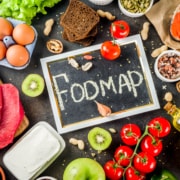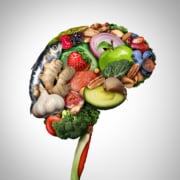Beneficial Live Dietary Microbes: Is it Time for Recommended Intakes?
Recorded September 28, 2023
IAFNS is a Continuing Professional Education (CPE) provider with the Commission on Dietetic Registration (CDR). CDR Credentialed Practitioners will receive 1.25 Continuing Professional Education Units (CPEUs) for completion of this recorded webinar until September 27, 2026
Description:
Evidence from human microbiome research, randomized controlled trials testing interventions containing probiotics on preventive and therapeutic endpoints, and associative studies linking fermented food consumption with improved health, all point to the value of the consumption of live microbes for supporting human health. Various international organizations are interested in moving forward the concept of a dietary recommendation for live microbes. Although many scientists and organizations have independently hypothesized that consuming live microbes may be beneficial to health, understanding this relationship and developing a recommended intake range requires a systematic approach, including evaluation of existing evidence, addressing evidence gaps, and aligning the information with a framework of data needs required to support a recommendation. In this session, the most recent evidence supporting benefits of live dietary microbes and health outcomes, as well as challenges to making these links will be reviewed. Recent work to fill evidence gaps and future directions/needs for developing a dietary recommendation for live microbes will be covered.
Webinar Speakers:
Johanna Dwyer, DSc, RD, Tufts University - moderator
Joanne Slavin, PhD, RD, University of Minnesota
Maria Marco, PhD, University of California, Davis
Desiree Nielsen, BSc RD, Desiree Nielsen Nutrition
Commission on Dietetic Registration Performance Indicators:
- 4.1.2 Interprets and integrates evidence-based research and literature in decision-making.
- 6.4.2 Demonstrates serious inquiry, examination, and experimentation aimed at the discovery and interpretation of knowledge, or the revision of guidelines, theories, policies or laws.
- 8.1.1 Interprets and applies evidence-based literature and standards for determining nutritional needs of target audiences.










